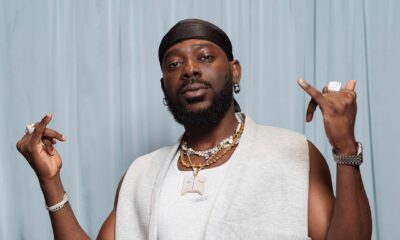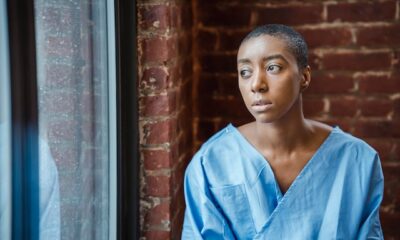Career
Dispelling Myths About Blood Donation & Saving Lives! Bukola Bolarinwa’s Haima Health Initiative is a Life Saving Cause
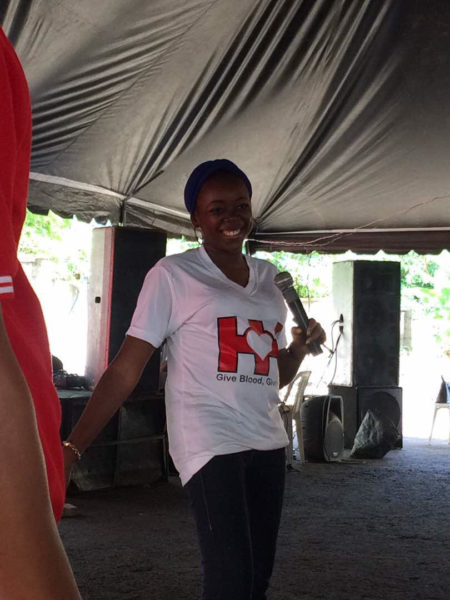 In 2016, Bukola Bolarinwa, was selected as a nominee for the Queen’s Young Leader Awards – for her work with blood donors for people living with sickle cell. Last month, the Queen of England, bestowed Bukola with the award. {Click here to read the news}
In 2016, Bukola Bolarinwa, was selected as a nominee for the Queen’s Young Leader Awards – for her work with blood donors for people living with sickle cell. Last month, the Queen of England, bestowed Bukola with the award. {Click here to read the news}
The organisation, Haima Health Initiative, is the brain child of 29 year old Bukola – advocate, lawyer, feminist and Sickle Cell Warrior. She started Haima Health unofficially in 2013, and two years later, the organisation was off to a more structured process. Haima, which is a latin word for ‘blood’ has been growing progressively since its inception.
Bukola has no plans of stopping, and she tells BellaNaija this, in the interview you’re about to read.
***
Who is Bukola?
I am the President of the Sickle Cell Aid Foundation (SCAF). I joined SCAF in 2011 at the Nigerian Law School in Bwari where it was set up by my friend, Nkechi Azinge. We both had personal experiences with Sickle Cell and wanted an avenue to create greater awareness and support for people living with Sickle Cell Disease (SCD). I live with SCD and I have been so lucky to have an excellent support system of family and health care providers but I know this is not the case for majority of people in Nigeria.
Tell us about Haima Health – why you started it, and how it runs
I started Haima Health Initiative because our Sickle cell beneficiaries often need blood transfusions and would ask us to get them donors. Most hospitals do not have adequate blood in stock, or they require a replacement for the one they use. In addition they charge exorbitantly for each pint. We started by calling our friends and families to donate at hospitals. As more people heard about us, we decided to help as many people as possible get blood.
I work with an amazing team of staff and volunteers to carry out activities to raise awareness about blood health, SCD and blood donation in Nigeria.
Operational framework
We have an online database, which allows people to register as voluntary blood donors that can be called on in emergency situations. We currently have about 1000 registered donors across 8 states in Nigeria who have donated over 500 pints of blood free of charge directly to patients. The goal is to increase the number of voluntary blood donors to just1% of the population and create a culture of donation devoid of superstition especially amongst young persons.
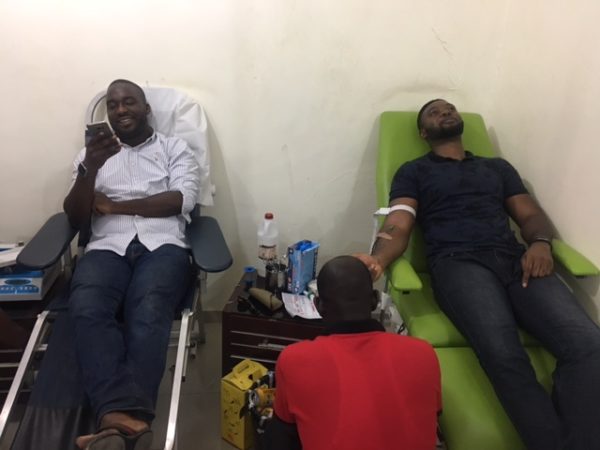 What would you say have been the most challenging parts of running a blood donor drive initiative?
What would you say have been the most challenging parts of running a blood donor drive initiative?
The most challenging part has definitely been getting over the negative stereotypes that Nigerians have about blood donations. In the early days of manually registering donors at events, I used to be shocked at what people would say. Even young people that you expect to be better informed still have a lot of misconceptions. People believe that we will sell their blood, that they will get an infection, that they do not have enough blood to give, that blood can be used for rituals etc. People also feel like they should only donate to their family or people they know when they need it, and the idea of donating to a blood bank to be used by anyone in need is met with cynicism. When I moved to Lagos, I also found it surprising that people expect to be paid for donating blood.
Man! That sounds tough. So, after getting interested donors, what are the processes you take to ensure that donors are properly screened and blood is stored and delivered appropriately?
All the blood is collected, screened and properly stored by the National and Lagos Blood Transfusion Services. They have adequate systems for this which work quite well. Unfortunately, in private hospitals and private blood banks it is difficult to properly ascertain how they screen and store blood. This is something that the regulatory authorities and Ministry of Health need to ensure that they build capacity in across all states.
This doesn’t sound cheap. Let’s talk about money! How is Haima Health being funded and how are you keeping the lights on?
We are currently funded by private donations from individuals and SMEs. Funding is one of our biggest challenges and like all NGOs we are always looking for partnerships with small and large companies that buy into our vision. Often times, it takes a personal experience with blood shortage to get people passionate about the cause, which is quite a shame. Our projects are not very expensive to execute so we work with small companies and individuals to host blood drives at their schools, religious organisations and offices. If anyone would like sponsor one of our blood drives, please contact us!
On a scale of 1 – 10, how would you rate your achievements, vis a vis your goals – at the time you commenced this initiative?
Probably 3; I really feel like we are just getting started!
So where is Haima Health going?
My vision is for Haima to help facilitate a system where there are no blood shortages in Nigeria. In countries like Japan and Korea, every healthy adult is automatically registered as a blood donor and have the choice to opt out. I have read that they often throw blood away, because they have too many people donating. With a population of roughly 180 million Nigerians, it is ludicrous that we are still having this problem.
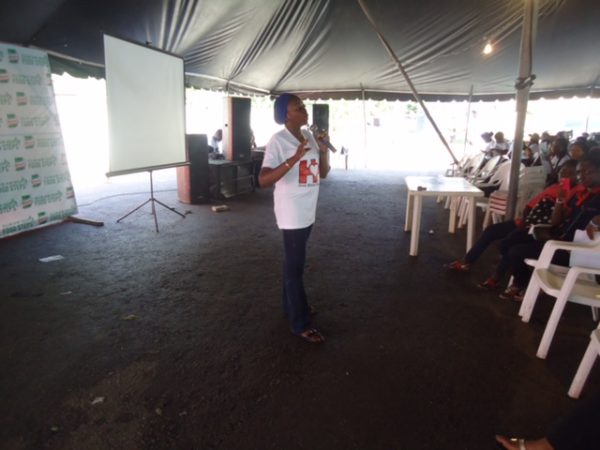 In what way do you see organisations like Haima Health Initiative working towards the eradication of sickle cell disorder?
In what way do you see organisations like Haima Health Initiative working towards the eradication of sickle cell disorder?
I do not think we can ever totally eradicate SCD and most science data backs this up. Almost 40% of Nigerians carry the Sickle gene (AS) and it is impossible that such a large pool of people will not have children together. Secondly, a significant number of pregnancies are not planned and so there is no time to carefully consider genetics.
Thirdly, even when both parties are aware of their genotype, decisions about marriage are built on love and other sentiments that genetics alone cannot conquer. I do think we can significantly reduce the number of sickle cell births that we have with more education and with improved science like Pre-genetic diagnosis and Pre-implantation Diagnosis. In the future, we are hoping that medication, bone marrow transplant and gene therapy will continue to cure people that are born with SCD or at least significantly improve lives.
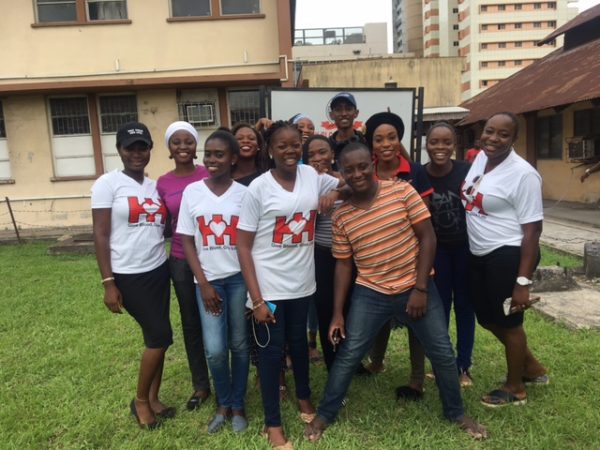 You seem to have so much on your plate. How do you balance work and life?
You seem to have so much on your plate. How do you balance work and life?
Most of the time when I am engaged in Haima or SCAF activities, I do not feel like I am working because I am so passionate about. This means I tend to over exert myself sometimes and have to learn when to say no to requests and take it easy. But I am very sociable so I do like to go out a lot. I enjoy travelling, eating out, listening to live music and meeting new people, all of which Lagos is fantastic for, albeit not so much on the pocket!
Bukky, what’s the most fulfilling part of Haima Health for you – personally?
It is definitely when patients or their families thank us for sending them blood donors. We have formed lasting relationships with some of them and it feels so gratifying to know that we have made this little part of their recovery process easier. Sometimes patients go on to become donors themselves when they are fully recovered and educate others around them further expanding the knowledge on blood donation.
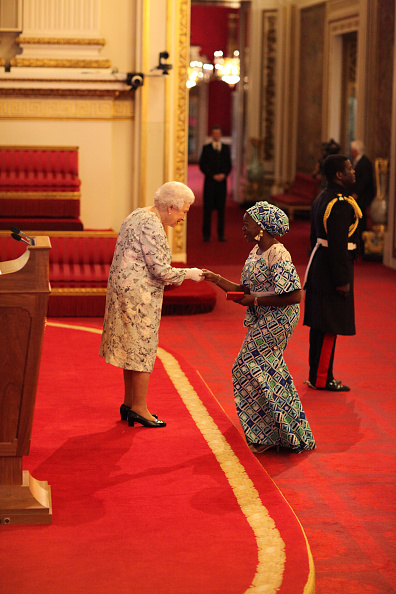 You met Queen Elizabeth II. Tell us about that experience and how you got selected as a recipient of the Young Queen’s Leader award.
You met Queen Elizabeth II. Tell us about that experience and how you got selected as a recipient of the Young Queen’s Leader award.
It was one of the greatest experiences of my life. I really cannot over sell it. It is a one-year program with online leadership courses delivered by the University of Cambridge Institute of Continued Learning. We have mentoring sessions with industry leaders who are working in similar fields with each recipient from around the world.
The two-week residential week started in June and we had classes and group sessions in Cambridge focused on growing our individual projects using teamwork, leadership, strategic thinking and creativity. We were able to visit the offices of Facebook, PWC, Oxfam, Google, BBC, Commonwealth and the Prime Minister’s Office at 10 Downing Street.
The award ceremony took place at Buckingham palace hosted by the Queen, Price Harry and Rt. Hon. Joh Major. This was followed by a reception in Australia House hosted by the Australian High Commissioner.
It was a fast paced and intense two weeks and by the end we were mostly burnt out, but it was worth every second. The best part was becoming friends with other young people from across the CommonHealth doing fantastic projects that improve their communities.
The selection process started with a very detailed application in November 2016 from young people under 29 across all the Commonwealth countries. They team is selected based on the level of innovation, sustainability, overcoming adversity and other set criteria. Those that make it to the next stage have a phone interview. I would encourage every young person who is doing community-impacting work to apply for the programme.
Tell us about your support system
I have an amazing support system that I am eternally grateful for. Firstly, my mum is my coach, prayer warrior, and greatest cheerleader. Nkechi is a great work associate, sounding board and optimist – which I need because I always think the worst of every situation! My Haima and SCAF team are passionate and make the vision easy to achieve together. My partner is also great, because he motivates me when I feel like giving up, which happens at least twice a month! I also have amazing family and friends who constantly encourage, appreciate and pray for me.
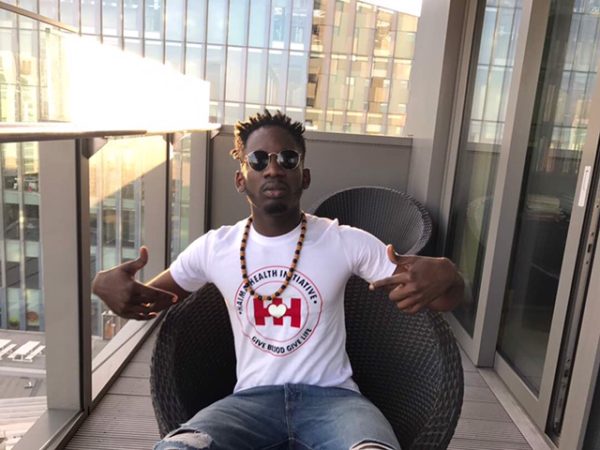 Nothing like good support. So, tell us where you see Haima Health Initiative in the coming year
Nothing like good support. So, tell us where you see Haima Health Initiative in the coming year
Our goal is to register 5,000 voluntary donors by the end of 2017 across all states. We are also working on raising funds to build an app that would make the connection process between donors and recipients more efficient. We aim to roll out donor registration programs across all Universities in Nigeria as they are our primary targets. The long-term goal is to register 1% of the Nigerian population as voluntary donors and eliminate shortages in our healthcare system.
That’s awesome! So, in conclusion, how can BellaNaijarians support the cause?
BellaNaijarians can join the movement and register to be blood donors at http://register.haimahealth.org.ng/enroll
They can help sponsor blood drives at their schools, communities, religious organisations, offices, and at their events. They can also help spread the word through their networks to help save more lives.
Website: www.haimahealth.org.ng
Facebook: Haima Health Initiative
Twitter: @Haima_health_
Instagram: Haima_health
Thanks so much, Bukola. Thank you for reminding us that within our little sphere of influence, we can actually save lives. Here’s wishing you the best in your future endeavours.


